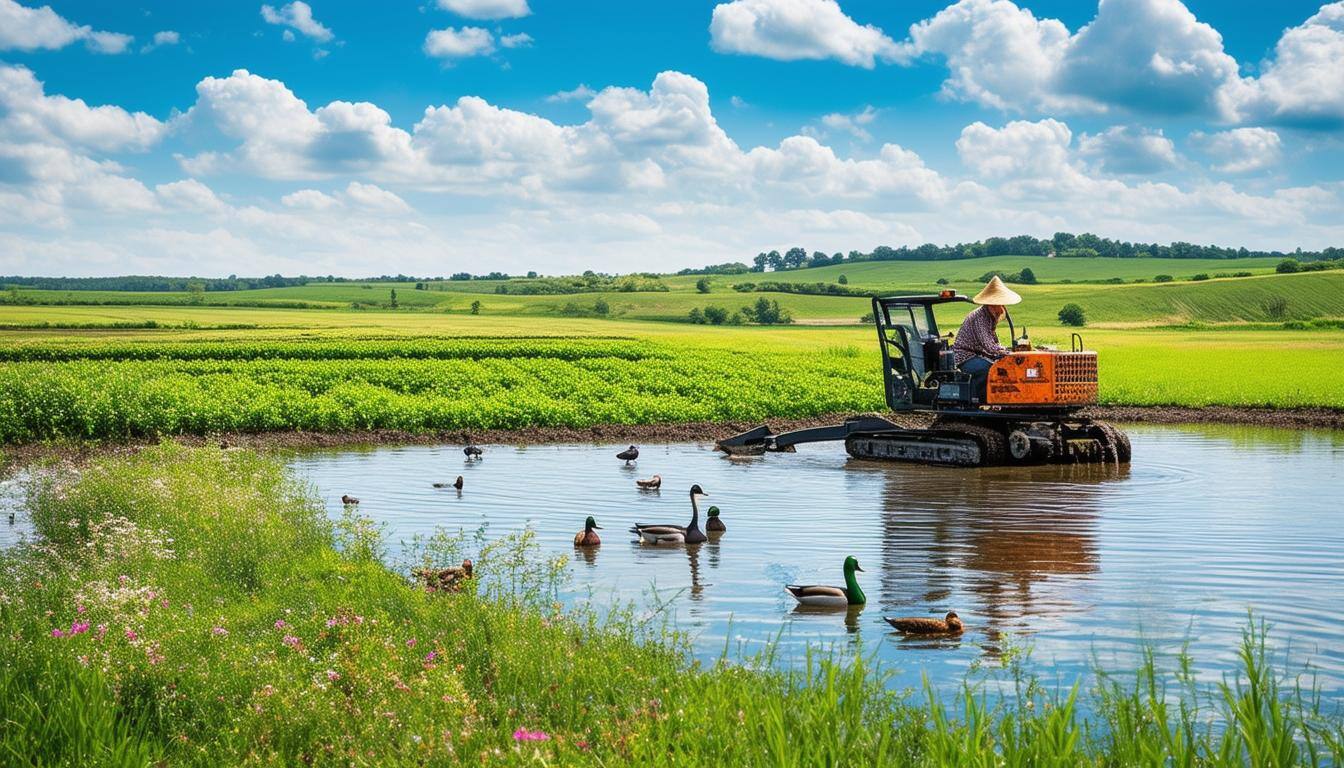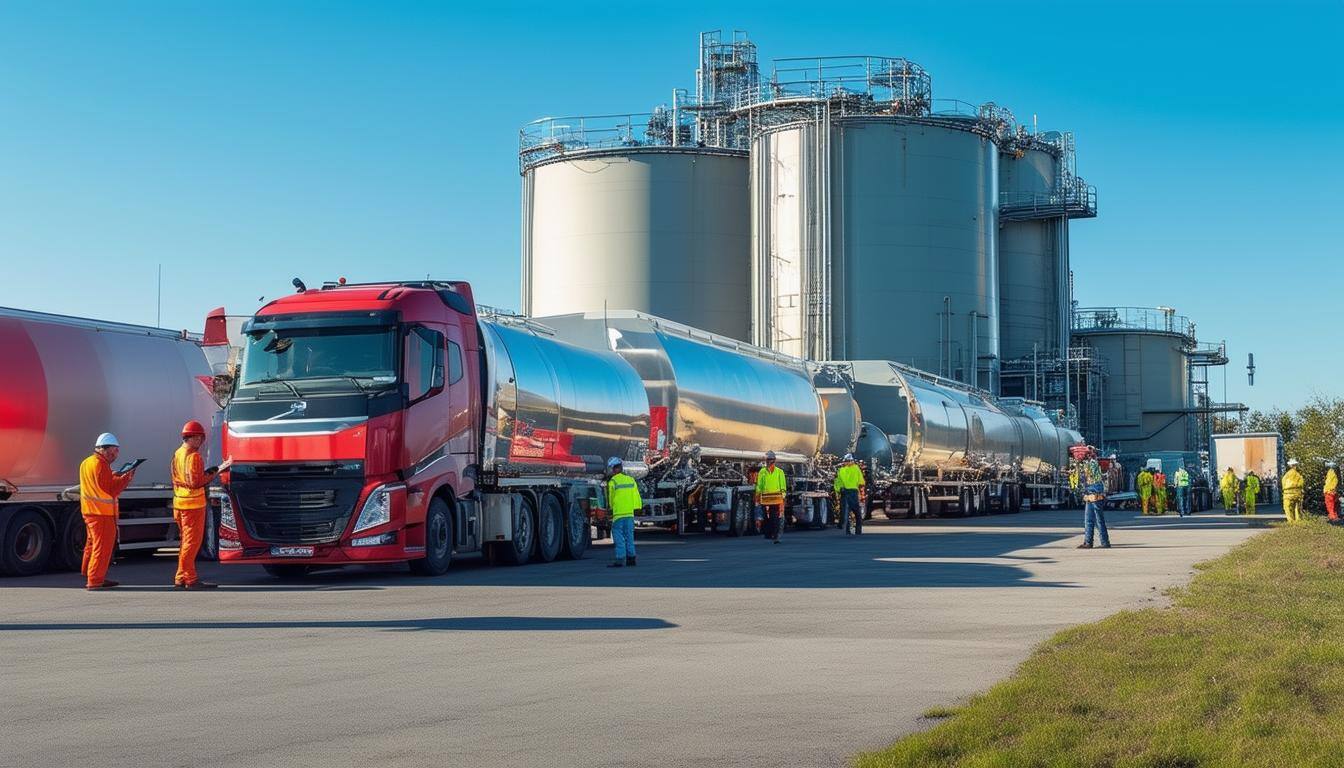How Pond Dredging Enhances Water Quality for Agricultural Businesses

Water quality is a vital aspect of agricultural productivity, directly influencing crop health and livestock sustainability. In many regions, ponds serve not only as a source of irrigation but also as critical ecosystems that support diverse wildlife. However, over time, sediment accumulation and organic debris can degrade water quality, making it less suitable for agricultural use. This is where the practice of pond dredging comes into play, providing a solution to improve water clarity, oxygen levels, and overall ecological balance. By understanding how this process benefits agricultural enterprises, stakeholders can make more informed decisions about maintaining their water bodies.
The Impact of Sedimentation on Water Quality
Sedimentation poses a significant threat to pond ecosystems, especially in agricultural settings. As rainwater runs off fields, it carries soil, fertilizers, and pesticides into ponds, depositing unwanted materials that accumulate over time. High sediment levels can not only cloud the water but also lead to decreased oxygen levels, disrupting aquatic life and reducing the pond's ability to self-regulate. Statistics indicate that nearly fifty percent of all ponds experience considerable sediment buildup, which can severely affect water quality and availability for agricultural usage.
Sediment-rich ponds can lead to harmful algal blooms, which consume oxygen and produce toxins, further jeopardizing fish and other wildlife. For agricultural businesses that rely on pond water for irrigation or livestock, sedimentation can have disastrous effects. Thus, understanding sedimentation's impact is crucial in recognizing the need for effective dredging solutions.
Pond Dredging: A Key Solution
Pond dredging is the systematic removal of sediment and organic material from the bottom of ponds. This process is not only effective in improving water quality but also instrumental in restoring the ecological balance of aquatic ecosystems. By eliminating accumulated sediments, farmers can enhance water clarity and deepen the body's overall structure, promoting healthier aquatic environments. The necessity for pond dredging arises from several factors: excessive nutrient loads, natural erosion, and disturbances from agricultural practices.
Farm operations that engage in proper dredging benefit from cleaner water sources, which in turn leads to improved irrigation practices and livestock health. Implementing the right pond dredging equipment can streamline this process and maximize efficiency, making it a viable option for agricultural enterprises seeking water quality enhancement. A well-maintained pond not only serves agricultural needs but can also provide recreational opportunities and enhance the landscape of the area. A healthy pond supports biodiversity and can help in managing pest populations, reducing the need for chemical interventions.
Benefits of Improved Water Quality
Enhancing water quality through pond dredging brings a variety of benefits to agricultural businesses. Cleaner water contributes to better irrigation, resulting in healthier crops and increased yields. When water sources are free of harmful sediments and pollutants, plants absorb water more effectively, leading to improved growth rates. Livestock that have access to cleaner water are less likely to experience health issues, such as infections or diseases caused by toxic algae. Healthy animals contribute to increased productivity for farmers, whether through higher milk yields or growth rates in meat production. Cleaner water from a well-maintained pond encourages farmers to utilize it more frequently, improving overall operational efficiency and sustainability in agricultural practices.
The Role of Professionals in Dredging
The dredging process may seem straightforward, but it requires expertise to ensure it is done correctly and safely. Hiring professional pond dredging services can provide the necessary know-how and equipment to execute the job efficiently. Specialists understand the significance of environmental guidelines and can help protect surrounding ecosystems during the dredging process. Mitigating sediment disturbances is critical for maintaining the ecological balance in the area. Professionals utilize high-quality equipment to minimize mess and ensure that the removal of aggregates does not inadvertently damage aquatic habitats. Therefore, working with experienced personnel limits ecological impacts while maximizing the benefits of the dredging process, ultimately leading to sustainable agricultural practices.
Cost Considerations and Long-Term Benefits
While initial costs for pond dredging can seem substantial, the long-term benefits often outweigh the drawbacks. Evaluating the investment in proper equipment and services versus the costs associated with low water quality can lead to significant financial savings. Agricultural enterprises that maintain clear water sources typically see increased crop outputs and lower livestock health-related costs, enhancing their bottom line in the long run. Farmers should consider the potential return on investment from an ecological standpoint, as healthier ecosystems can help reduce the need for chemical fertilizers and pesticides, saving both money and the environment. Hence, pond dredging not only improves water quality but also supports a more sustainable agricultural model.
Ultimately, pond dredging offers a strategic solution to enhance water quality for agricultural businesses. By removing harmful sediments and promoting healthier aquatic environments, farmers can improve crop yields, animal health, and overall operational efficiency. The benefits extend beyond immediate agricultural needs, fostering biodiversity and ecological balance that support long-term sustainability. Maintaining clean water sources through professional dredging services ensures that agricultural enterprises thrive while contributing positively to the surrounding ecosystem.
Related Posts
Join the movement.
Your Entourage journey starts here. Join Australia's largest community of over 500,000 business owners and entrepreneurs, and receive instant access to exclusive content and updates delivered straight to your inbox.




